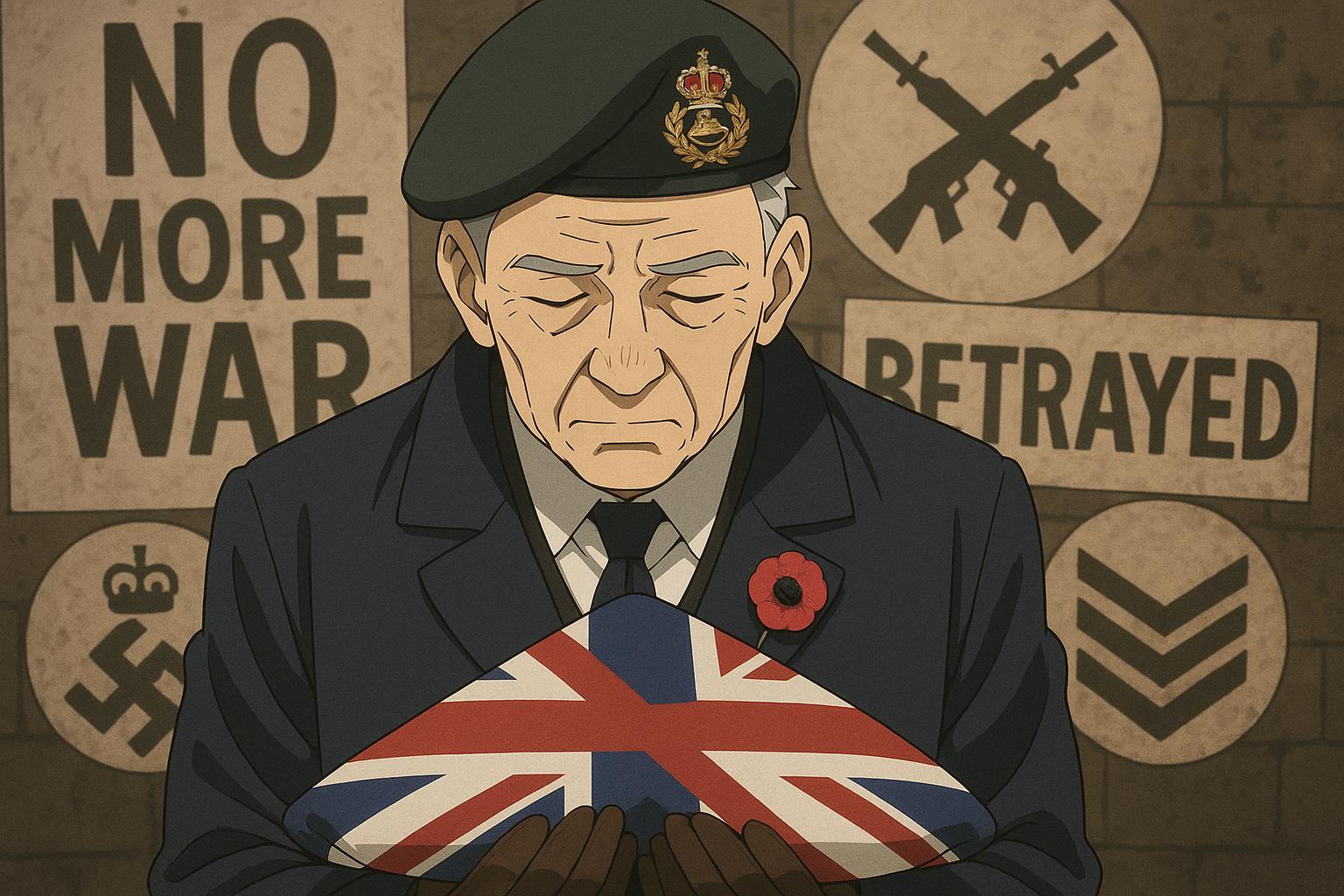Labour is currently facing significant backlash from military personnel, particularly regarding its plans to repeal legal protections for veterans of the Northern Ireland conflict, known as the Troubles. This has led to accusations of a "mutiny" within the ranks of the British Army as key infantry regiments publicly express their discontent over proposed changes to the Legacy Act. This legislation was designed to shield UK troops involved in the Troubles from potential prosecutions and civil suits long after their service, granting a form of amnesty in exchange for cooperation with investigations.
In an unprecedented move, social media accounts of The Rifles and the Royal Fusiliers have shared a petition calling for Parliamentary debate on the issue, openly defying the traditional military protocol that discourages political expressions from serving soldiers. Retired Colonel Rob Dickinson, in an email to veterans from The Royal Welsh, urged colleagues and their families to support the initiative, marking a significant departure from established protocols. Andrew Fox, a retired Major from the Parachute Regiment, described this as indicative of a brewing "mutiny," highlighting the deep-seated feelings of betrayal within the military community.
The backdrop to this unrest is Labour leader Sir Keir Starmer's commitment to repeal the controversial Legacy Act, initially enacted by the former Conservative government. Critics have been vociferous, asserting that such a move could result in veterans being subject to legal proceedings decades after the events in question, undermining their sense of security. Robert Clark, an Iraq and Afghanistan veteran, articulated the sentiment of many when he described the proposed legal reforms as a "deep betrayal," pointing out that they could lead to the prosecution of individuals who have already been cleared of wrongdoing.
Military analysts have cautioned that the repealing of these protections could not only lead to emotional and legal turmoil for veterans, some of whom are now aged in their 80s, but also disrupt the fragile reconciliation process in Northern Ireland. The Legacy Act, while drastically opposed by local political factions and victims' advocacy groups, had provided a measure of closure for many veterans after years of scrutiny and investigation regarding their conduct in a deeply polarised conflict. Indeed, the Act had effectively halted additional civil litigation related to Troubles-related deaths, a point noted with increasing concern by military sources.
As Labour's plans unfold, the division appears to run deep. The SAS Regimental Association publicly condemned the government's actions, asserting that it would increase the emotional strain on veterans already embroiled in legacy processes. After the recent inquest ruling that a SAS unit had used unjustified lethal force during an operation, the cumulative effect of such legal uncertainties is fuelling a sense of abandonment among those who served.
Criticism within the ranks has escalated to the point that a House of Commons debate is now being called for, driven by the reach of the petition, which has amassed over 44,000 signatures. While the Labour Party has sought to mark a clear delineation from previous government policy, its approach risks igniting further frustration among veterans and their advocates. Discussions surrounding this issue are complicated by historical grievances, notably that the agreement which underlined the 1998 Good Friday Agreement has yet to resolve the continuing tensions related to the Troubles.
The Ministry of Defence has acknowledged the irregularity of the political posts made by The Rifles and has initiated an investigation into the matter, signalling a desire to reaffirm military neutrality in political affairs. However, with the political climate shifting and the large cohort of veterans willing to stand against Labour’s proposed reforms, the spectre of a significant rift between the party and the military community looms large.
As this situation evolves, it remains pivotal for all parties involved to address the longstanding wounds from the Troubles while maintaining the respect and trust of those who served in the conflict. Labour's challenge will be not only to navigate these legal reforms sensibly but to heal the rifts that have emerged within military ranks, lest the spectre of division further compound the pain of a troubled past.
Reference Map
- Paragraphs 1, 2, 3, 4, 5, 6, 7, 8
- Paragraph 1
- Paragraph 1
- Paragraph 1
- Paragraph 1
- Paragraph 1
- Paragraph 1
- Paragraph 1
Source: Noah Wire Services
